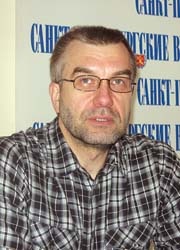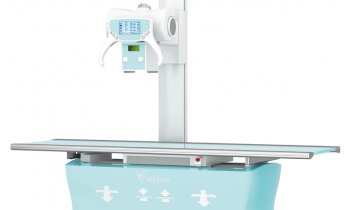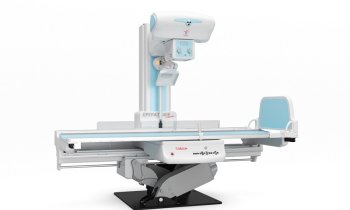Congenital cardiac surgery in Russia
Last year a special cardiac surgery department was opened in the Filatov Children's Hospital in Moscow. Until then, the only one in all of Russia was at the Children's Hospital #1, in Saint-Petersburg, where cardiac surgeon Vadim Lubomudrov has led the field in this delicate work.

‘Why are there so few children’ surgeons Russia?’ our correspondent Olga Ostrovskaya asked him. ‘After all, statistics reveal infant mortality is about 11 per 1000, and about 3,000 newborns die annually due to congenital heart disease.’
‘That’s not a simple question,’ Dr Lubomudrov replied. ‘Russia now has 78 centres that carry out congenital heart surgery, but only 30 centres perform operations on infants. Infants represent 29.2% of all operations and newborns are never counted in our country. It’s no wonder that Russian cardiac surgery is at a low level: if country has a Health Development Index of 0.802, it cannot have great surgery.’
About 25 years ago, when Dr Lubomudrov began to work at the Children Hospital #1, the hospital had no cardiac surgery at all. Moscow had the only centre for children with congenital heart diseases (over 5 years only); every city and small town could add the children to the waiting list and send them to Moscow when their turn came, if the child had not died while waiting.
A sad situation indeed, especially remembering that Russian surgeons performed some of the first advanced surgery in the world! Vladimir Demihov (1916-1998) placed the artificial heart in dogs in 1937, carried out a heart transplant in 1946 and an orthotopic heart transplant in 1951 (without CPB). In 1946 he performed a heart-lung transplant and, in ’48, a liver transplant. Unfortunately this work remained in the laboratory, never to become possibilities within the country’s healthcare system.
‘Then, 20 years ago, good fortune arrived,’ said Dr Lubomudrov. ‘A Russian mother, with a daughter who had a congenital heart problem, worked as an interpreter for the international film festival in Saint-Petersburg, and she told an American woman, Joan MacGovery, the festival’s organizer about it. Joan found the money to perform the surgery in the USA, and then thought: If I could find money for one baby – why not for the others? From this came the foundation of the charity From Heart to Heart. For several years American surgeons and neonatologists came to Saint-Petersburg and Russian surgeons went to American cardiac centres. After several years we, in Saint-Petersburg, developed a really professional team to perform surgery on infants. Up to now, we operate using American equipment and American supplies.’
This March, the project’s 20th anniversary was celebrated in California by members of the American cardiac centres and Saint-Petersburg Children’s Hospital.
The team at Hospital #1 performs about 300 operations annually (75% for newborns and 80% for infants weighing under 10 kg). All of needs of Saint-Petersburg are met by these surgeons, but they worry about newborns who have congenital heart diseases in other cities, but their only chance is surgery in the Bacoulev Centre for Cardiovascular Surgery in Moscow, but this centre only performs surgery on children over a year old.
‘It’s a well-known fact,’ Dr Lubomudrov reflected, ‘if a centre doesn’t specialize in infant surgery, and can choose whether to operate on adults or children, the surgeons will decide on adult surgery – because it’s not as much a liability as infant surgery. That’s why we have a lot of new advanced cardiac centres in Russia but not one for the infants.’
01.05.2009











